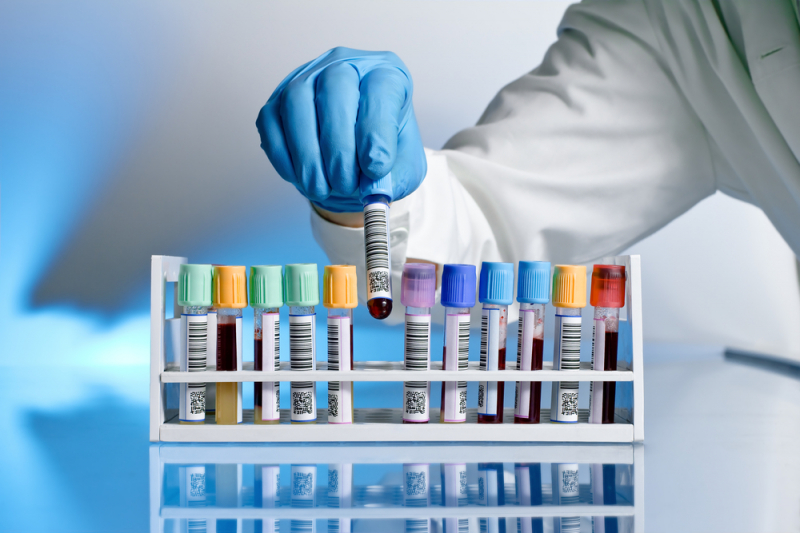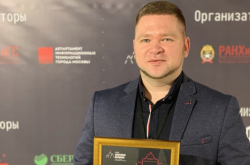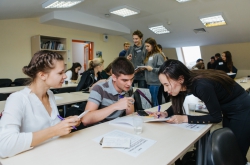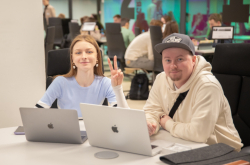Total digitalization of all spheres of life is the main trend of the last decade. The pandemic has significantly sped up this process: online services are now practically fully covering our communication, consumption, leisure, and educational needs.
But the medical services market is only just starting to explore internet platforms. The field of telemedicine still hasn’t been formalized neither legally nor factually: few are ready to risk venturing into this field. But recent developments give IT startups a new scope of action. One such service in the field of digital medicine has recently been launched by Nikolay Polovnev and Sergey Shemelev, ITMO Accelerator residents and students of ITMO’s Innovative Entrepreneurship Master’s program.
The idea
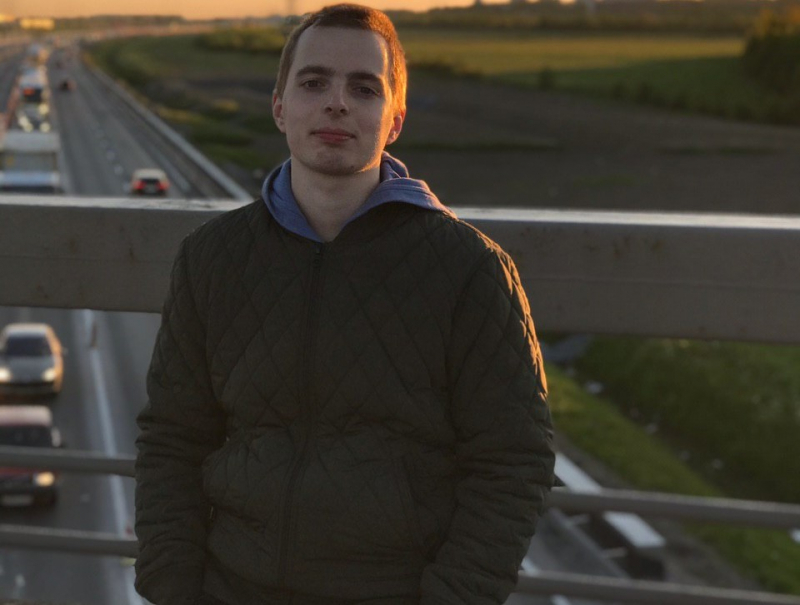
Sergey and I met at the Accelerator’s open day back in September. It turned out that we were in the same study group. This was how we decided to try launching our own project. The idea was to develop an algorithm which would pick an appropriate diet and vitamins for a user based on the results of their DNA test. It soon became clear that this idea wouldn’t fly, the main reason being that we opted for the wrong mechanics.
Only a handful of people in Russia actually take DNA tests, which cost around 15,000 – 20,000 rubles. What’s more, these are a one-time thing: a user would take the test, get the results, and leave. The same limitations are encountered by companies in this market. Going back on the implementation of this idea didn’t affect us one bit – on the contrary, we got a clear understanding that the intersection of medicine and IT is our forte. This is one of the fastest-developing markets both in Russia and the world at large, but most importantly, both Sergey and I really enjoy working in this field.
Over the winter, we managed to test four more hypotheses, and by the end of February, we entered the market with “I’m Near” (Я рядом), a service that allows people to keep tabs on their elderly relatives’ health from a distance. For example, imagine that you live in Germany, your grandma lives in St. Petersburg, and you want to know how she’s doing healthwise and how you can help her.
It’s difficult to organize on your own now: you have to either contact the hospital or some familiar doctor. So, we started offering full-fledged medical examinations at home. At that point, I had to master phone sales – the main client attraction channel for this project. I still remember how excited I was to sell my first 7,000 rubles-worth checkup.
Then quarantine came, and it became clear that we couldn’t upscale our project in the near future. Its main emphasis was on preventive medicine, and sending a doctor to an elderly person’s home if there isn’t any pressing need for it is a no-no in the current conditions. That was why we put this idea on hold and focused on what we already had – arrangements with laboratories.
This was how the Lotos project came up. Its main functionality is that it allows you to compare prices of medical tests in different laboratories all over the city, access them at a discounted price, and plan an individual check-up. I have vast experience working as a SEO specialist and webmaster with medical online projects, which is why we managed to complete all pre-launch steps and enter the sales stage at lightning speed.
Investments and legal advice
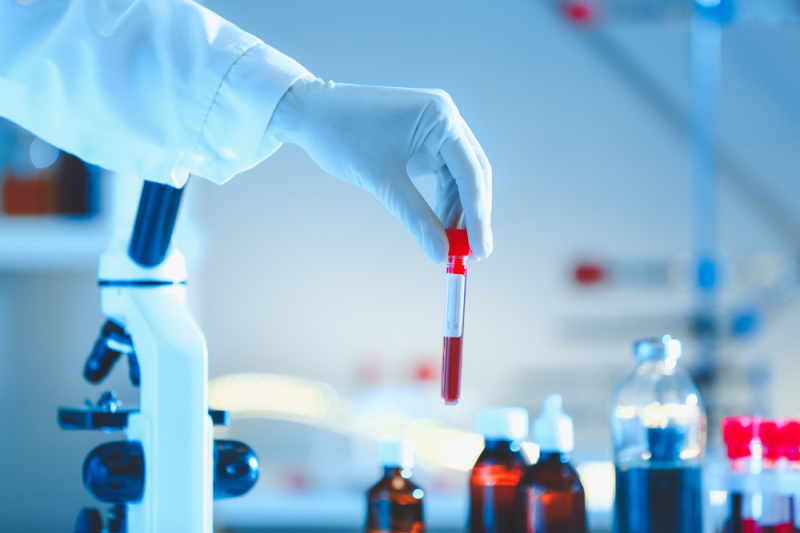
At the moment, we aren’t actively attracting any investments. Our competencies and budget is enough to finalize the project’s current functionality. At the same time, I see a lot of potential for our project, including in the adjacent segments of the market. That’s why, upon reaching certain milestones, we’ll be seeking investments to upscale our project and expand our market share. It’s important for this to be “smart” money. We see our investors primarily as project partners.
It’s crucial for us to enter the sales stage as soon as possible, operating on the principle “add a feature and sell”. This speeds up the development process and allows us to detect and eliminate any cracks, focusing on what’s most important. Having a cash flow is always nice, too, it motivates you and keeps you on your toes. Otherwise, you have to be careful: you can perfect your project for months but then enter the market and realize that unit economics doesn’t add up so much that it'd be better for you to close your project right there and then.
From the legal standpoint, medicine is a highly regulated market, which is why doing everything competently took us more time than we’d expected. Registering and signing the necessary documents ate up a lot of time. At some point I caught myself thinking that each of my phone conversations started with the phrase “we aren’t a medical organization, we provide IT support.”
After we complete each iteration and before we update our service, we make sure to consult with lawyers and gather feedback.
The telemedicine market is a whole other story because in Russia, this field hasn’t been fully regulated yet. This is a gray market: it seems not to be prohibited, but at the same time, doctors, for example, can’t provide conclusions on the internet. There are very fine lines here, and in order to tap into this market, you have to act very carefully from the legal point of view. With that in mind, we’re now at the stage of negotiations with major telemedicine players, after which we’ll be involving our doctors.
Partnership program and promotion methods
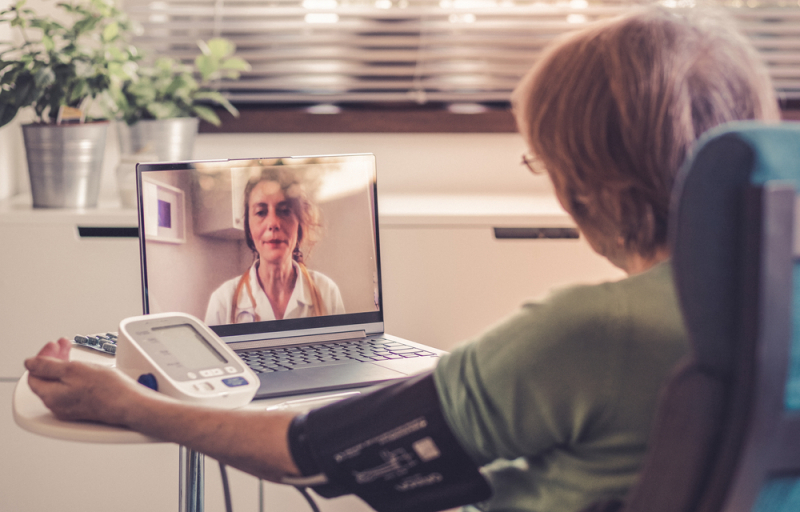
We reached out to the biggest market players offering them to be featured on our website as an opportunity to get more clients. Strange as it may seem, in its beginning the pandemic caused laboratories a huge customer outflow, the labs’ websites experienced a 20-30% loss in views, and they generally never considered the internet as their main source of clients. That’s why right now, they’re very interested in new promotion channels.
We’ll be attracting clients via the most convenient and needs-oriented service on the Russian medical tests market. It’s very important for us to understand the patient and their issues. After six months of studying this market, it became clear what people need the most.
We don’t have any immediate competitors, but there are cases that inspire us, for example, the Ornament app, which allows you to store your test results, it has a more gamified mechanics. There are websites that also allow you to compare prices, but they’re all either badly made and feature outdated information, or have a different specialization. Essentially, no one in Russia is currently offering a business model that would be similar to ours.
First and foremost, the project is intended for people who take care of their health, get regular check-ups, and prefer to take preventive action. Parallel to that, we’re developing lots of channels for attracting traffic, thanks to which we’re already seeing our expenses pay off. Last week, we struck a cooperation agreement with specialists and popular bloggers in this field, as per which they can post their own test packages and recommendations right on our website.
The team
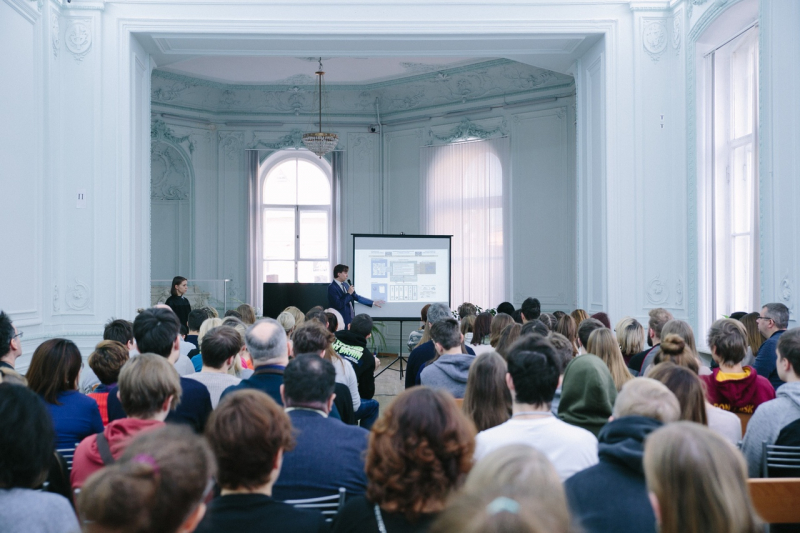
Initially there were two of us in the project: Sergey and I. Both of us are studying in the Innovative Entrepreneurship Master’s program, and have already been through fire and water together. We also invited Nikita Sobolev, a talented specialist in the field of big data and web development, also from ITMO – he and I did our Bachelor’s studies together. So our team is very tight-knit and strong.
At the first stages, the team is a very important resource for a startup. If someone doesn’t work well enough or isn’t interested in this particular field, they slow everyone else down. We’re very attentive when searching for new team members: we want them to be ambitious, talented, and like-minded. Right now is the time when three people’s efforts are no longer enough, so we’re on the lookout for a content manager and a specialist to manage orders.
ITMO Accelerator
I’m hugely grateful to ITMO University, which runs both our Master’s program and the Accelerator. At the start, we only had one idea, but we were nevertheless given a mentor together with whom, literally within a month’s time, we managed to significantly boost our competencies in the creation of startups and business.
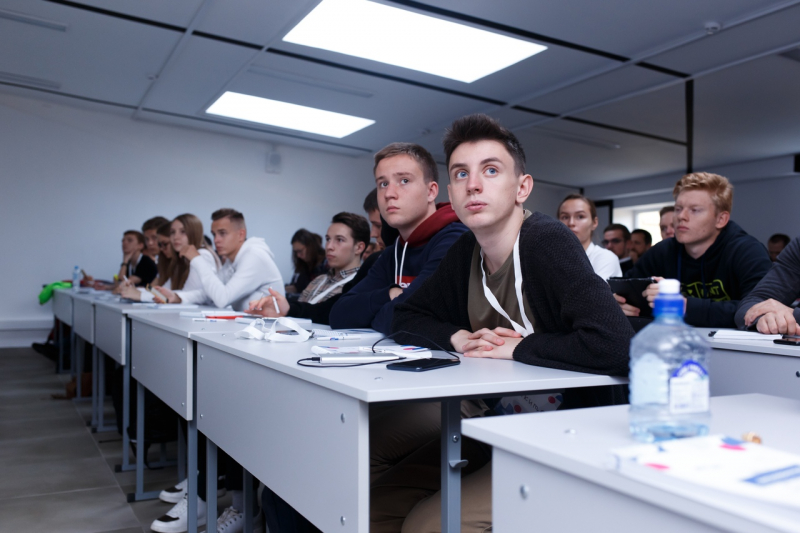
The Accelerator always had wonderful lectures by all kinds of speakers: specialists in SEO, web development, marketing, and SMM. We were taught practically everything there is: from how to make a great presentation and where to get traffic, to how to keep track of income and expenses. I’d like to seize this opportunity to express my gratitude to our mentors Alexey Tolmachev and Maksim Makarov, the Accelerator’s staff Alexey Solomatin, Irina Lvova, Natalya Lebedeva, Maksim Zaikin and Konstantin Khomchenko. The most important aspect is the people who surround you and help you, our project wouldn’t be there without their support and advice.
It’s with pleasure that I remember last semester’s classes organized by our faculty’s dean Anton Gopka. Through the whole semester, we had the chance to listen to lectures by world-renowned experts: Alexander Gorny, Garrett Johnston, and others. Having your lectures delivered by such experts is great, this is practiced by the best business schools. ITMO is a place that’s truly geared towards getting you to implement your project and launch it on the market. You get a lot of help.
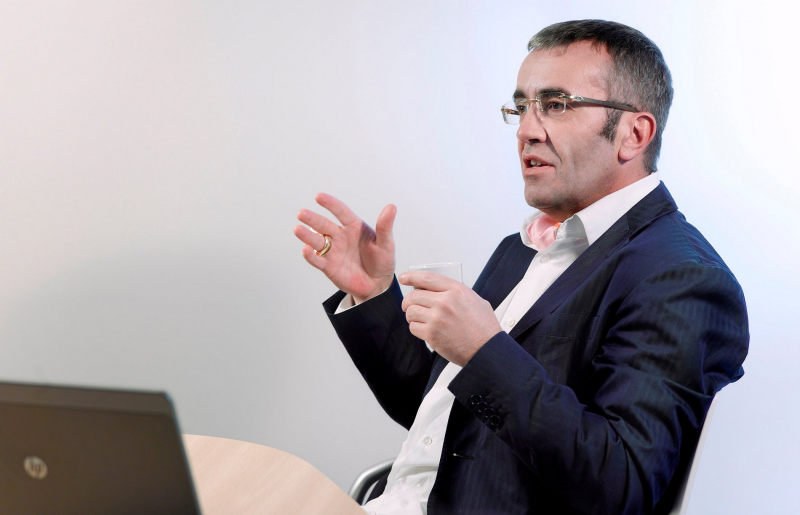
The future
Our most important task for now is to improve the search system and simplify the cycle of ordering the tests for users. An update is currently in the works – it will incorporate a monitoring system that will include absolutely all of St. Petersburg’s laboratories (as of now, we only have a part of them). On top of that, we’ll make a higher quality interface. Very soon, the website will also get complete test packages distributed by age, chronic diseases, and some other parameters. What’s more, it will be possible for you to create a personalized check-up by entering the necessary data about yourself.
It’s important to understand that it’s quite rare for people to get tested just for the sake of it – usually it’s asked for by a doctor. That’s why, in order to ensure a convenient and time-saving experience, we’ll expand our service with an opportunity to consult a doctor online.
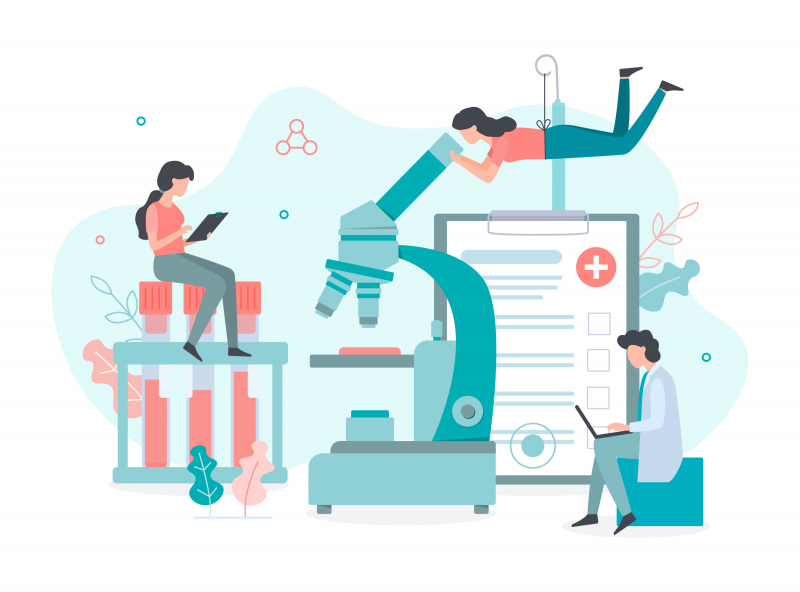
Later on, we’ll be analyzing obtained data using artificial intelligence to predict potential health issues or diseases. Of course, we’re not entitled to give any assessments, to provide any medical services. But what we’re looking toward now is digital medicine. If we know some medical data, we can provide a unique experience. By processing the data, we’ll be able to give some advice and attract a user’s attention to some of the aspects of their health.
The work on launching our service in other regions has already started. The system is easy to upscale, hence we’ll be able to add a new city at any given moment. But for now, we focus on making a high-quality service that would provide a truly unique experience for each user – this is our top priority.
